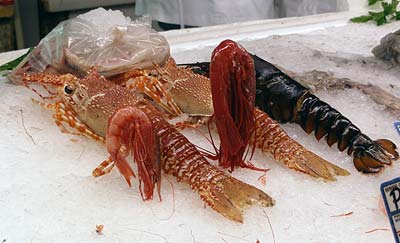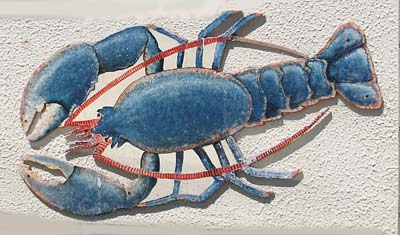Caramel. As in other languages, this may describe the caramel itself or toffees or sweets made with it.
Acid drop. A boiled sweet, cooked to the hard crack stage, made with sugar and citric acid.

Crayfish. Spiny or rock lobster. Langouste. A salt water crustacean, not to be confused with freshwater crayfish.

Lobster. The European lobster is a large, marine shellfish with huge claws and is dark, mottled blue-black before cooking, turning red during the process. The flesh is sweet and tender. The Maine or American lobster found in the United States is huge in size and lacks the wonderful sweetness of its European cousin. American varieties may sometimes be brick red before cooking. In Europe they are likely to up to 2 kg (4¼ lbs) while North American ones may be a lot larger. Increasingly, American lobsters are imported for use in Europe.